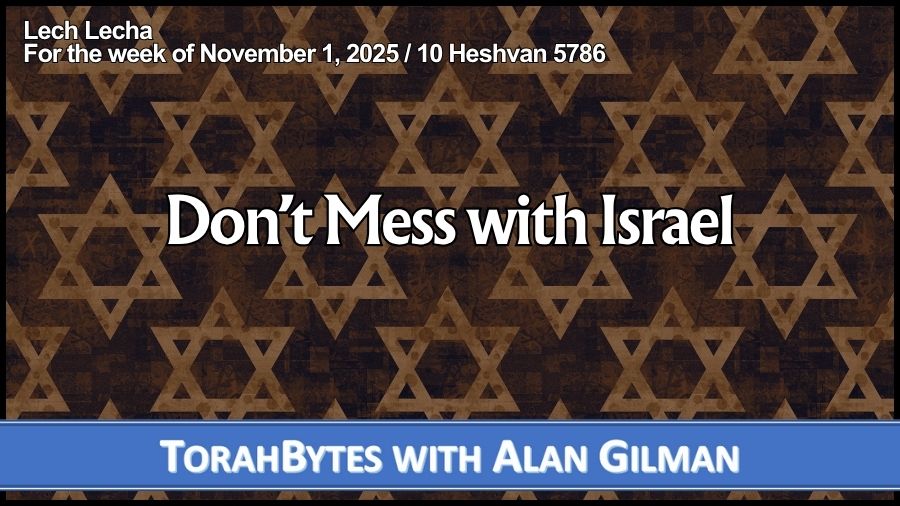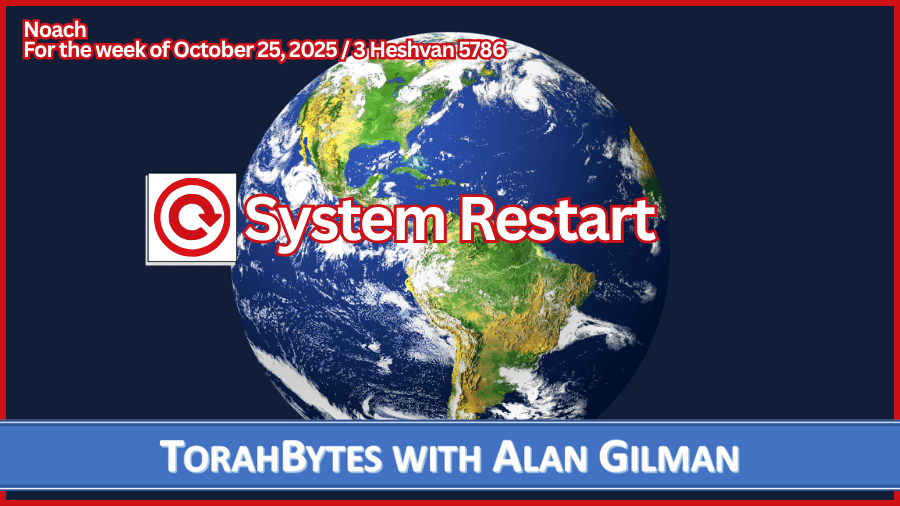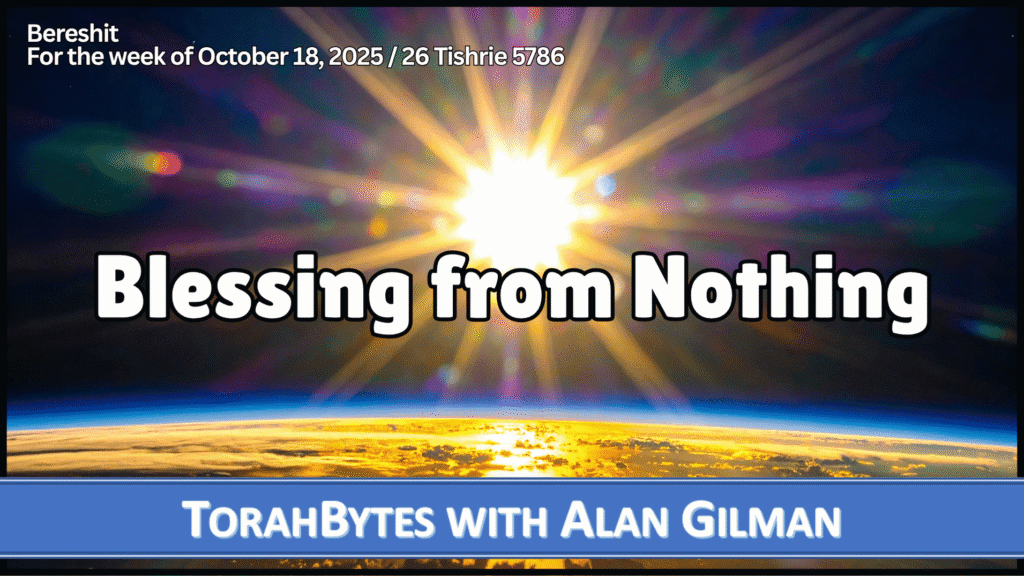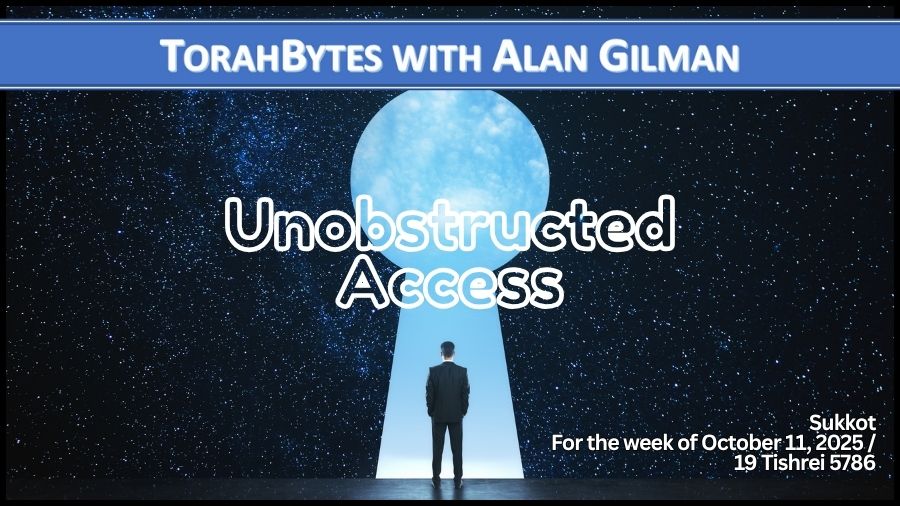For the week of November 1, 2025 / 10 Heshvan 5786

Lech Lecha
Torah: Bereshit/Genesis 12:1 – 17:27
Haftarah: Isaiah 40:27 – 41:16
Now the LORD said to Abram, “Go from your country and your kindred and your father’s house to the land that I will show you. And I will make of you a great nation, and I will bless you and make your name great, so that you will be a blessing. I will bless those who bless you, and him who dishonors you I will curse, and in you all the families of the earth shall be blessed.” (Bereshit/Genesis 12:1–3)
It’s tough not to get sentimental when coming back around to this parsha. It was twenty-eight years ago this week on the Jewish calendar that I attempted something radical—a weekly online messianic Torah commentary. The Internet was still catching on, and I didn’t know if my writing would catch on as well. But here we are, twenty-eight years later, and for now, TorahBytes is still being produced, not only in text format, but in audio as well, and more recently, a YouTube version. Be sure to check out the website for all past messages.
There are so many layers to the call of Avram (in English we say, Abram), whose name was later changed to Avraham (English: Abraham). This passage could be taken as the real start of the Bible’s overall story, following the essential but introductory subject matter of the eleven previous chapters. It’s there that we learn of God’s good creation that he cursed due to our first parents’ disobedience. While he hints at an eventual resolution to evil and its influence early on, the outworking of that plan doesn’t get going until God tells Avram to “get going” as he entrusts him with a mission designed to bless the entire world.
It’s difficult for us to fully appreciate the great risk Avram willingly took on. And yet he did so, but not without God’s assurance that he would watch his back, based on these words from Bereshit/Genesis 12:3: “I will bless those who bless you, and him who dishonors you I will curse.”
While in its immediate context, God is promising special protection to Avram specifically, this should be understood as an integral part of the overall unconditional covenantal package given to the people of Israel. This is based on the covenant’s being passed on to his son Isaac (Bereshit/Genesis 26:3–4) and later, to his grandson Jacob (Bereshit/Genesis 27:27–29; 28:13–15), whose name was changed to Israel from whom the nation is derived.
Now, I would like to share an important promise dynamic that I have missed for most of my life. Many English translations fail to reflect the original wording by falsely creating an exact parallel of the blessing and cursing phrases. For example, the New International Version (NIV) reads, “I will bless those who bless you, and whoever curses you I will curse,” which is the way I have tended to remember it. That’s because in my first thirty years as a Yeshua follower, my go-to Bibles were first, the New American Standard Version, which is very similar to the NIV in this regard, and then the NIV, which I just read to you. Even though I have been using the English Standard Version (ESV) for about twenty years, I didn’t notice that it was different: “I will bless those who bless you, and him who dishonors you I will curse.” The Hebrew uses barach, meaning “to bless,” twice, but is then followed by kalal, meaning “to belittle,” and arar, meaning “to curse,” a difference reflected in only a few translations. For the record, the two other occurrences of this blessing/cursing-type statement, found in Bereshit/Genesis 27:29 and B’midbar/Numbers 24:9, do use “arar” (to curse) twice, but that should not give translators the green light to not reflect the word differently in God’s promise to Avram.
God was not simply promising Avram that he would only confront those who formally curse him or his promised descendants. God made clear to him that the world would not get away with mistreating him or his people in any way, even if it were simply looking down on them. Israel was called to be God’s chosen nation through whom he would bless the world. Whether the individuals were aware of this or not, we (since I myself am Jewish) have been set aside as holy vessels for his purposes. If anyone messes with what belongs to God, he will mess with them.
Scriptures taken from English Standard Version unless otherwise indicated


